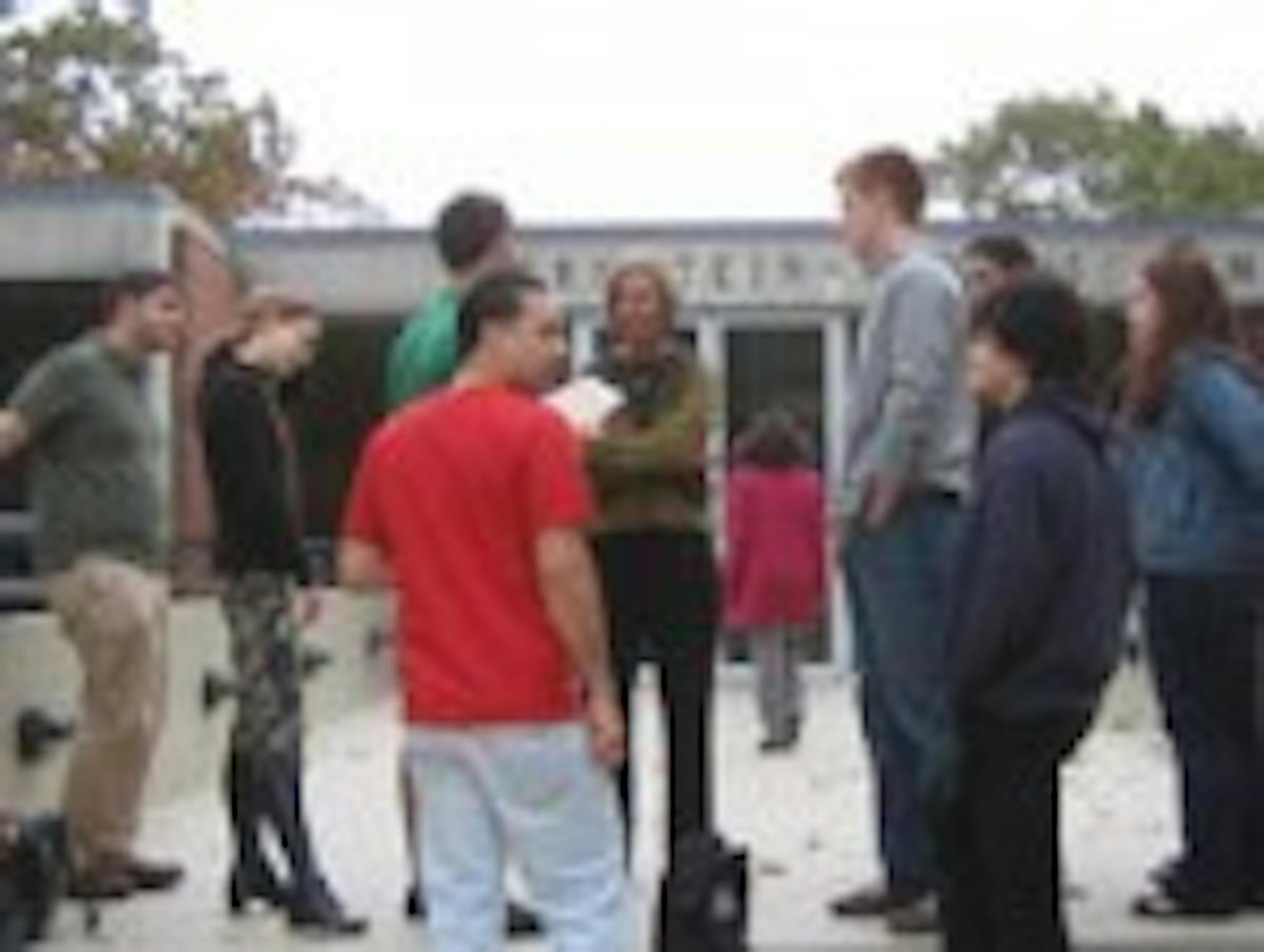Prof penalized for alleged racist remarks
The University disciplined a longtime politics professor last week after concluding that he made "inappropriate, racial and discriminatory" comments during a class in late September which violated University nondiscrimination policy, according to documents obtained by the Justice.Prof. Donald Hindley (POL) was notified of the action against him last Tuesday in a letter from Provost Marty Krauss, which he provided to the Justice.
Krauss assigned Assistant Provost Richard Silberman this week to begin attending POL144a-the Latin American politics course in which the infraction allegedly occurred-to "monitor" Hindley's lectures for speech that might violate University nondiscriminatory policy, the letters said. The University will also require Hindley to complete anti-discrimination training.
Hindley, who is in his 47th year teaching at the University, called the charges against him "ridiculous" and "totally out of the blue." He said that he has appealed to the Faculty Rights and Responsibilities Committee and that his case has been accepted.
Many students enrolled in his course voiced opposition to the sanctions. In a show of support for Hindley, a group estimated at around 13 students, about a third of the class, walked out before Hindley's lecture last Thursday. The students marched from Rabb to the Bernstein-Marcus administration building, where they met briefly with Krauss before returning to class.
"We asked to know what was going on, why we weren't informed," said Lily Adams '09, who participated in the walk-out. She added: "It's become a sort of guilty until proven innocent. There's no dissenting view or no forum for students to speak out on his behalf."
Krauss said she told the students that the process was "confidential" because "it's important that people have the courage to come forward once they have a complaint."
At least one complaint appears to have stemmed from Hindley's reference to the term "wetbacks," a derogatory expression used to describe illegal immigrants who have crossed the Mexican border. Hindley defended his discussion of the term, saying he had used it to describe racism of a certain historical period. Throughout American history, he said, "When Mexicans come north as illegal immigrants, we call them wetbacks."
Adams also denied Hindley had used the term in an offensive context. "If he had made comments that were legitimately racist, the whole class would have complained," she said, adding, "It was never him saying, 'This is what I call them,' or, 'This is an appropriate term.'"
In an interview, Krauss declined to elaborate on the specific nature of Hindley's comments, citing a need to protect the complaintants. "I know some are upset about this, but there should be some confidence that a detailed process was followed that allows people to come forward with complaints against their supervisors and/or faculty," she said.
Hindley defended the right of a student to object to the content of his lectures, but said the source of the complaint had been "used by vengeful people." He attributed the vigor of the University's reprimands in part to his outspoken comments on a number of issues, including a dispute over his salary and his opposition to some Israeli tactics in the Israeli-Palestinian conflict.
"I object loudly to what I see to be arbitrary and unjust authority and that includes within the department and within the administration," he said.
Although Prof. Steven Burg (POL), chairman of the Politics department, received the complaints first, Hindley said, the issue was referred to Dean of Arts and Sciences Adam Jaffe and later Krauss, without an attempt to mediate the solution. Section 7a of the Faculty Handbook requires department chairs to "resolve issues concerning faculty rights or responsibilities . through direct discussions with the faculty member involved and/or through mediation."
The University's Non-Discrimination and Harassment Policy recommends that problems be resolved "informally" and states that the Human Resources and Employee Relations Department can "assist in this process."
Hindley said he was first alerted to the complaints Oct. 22 after receiving an e-mail from Jesse Simone, director of employment, employee relations and training, requesting a meeting that day. Over the course of the nearly two-hour meeting, Simone and Hindley discussed the allegations in the presence of another man, who took notes but did not speak.
"She said, 'Did you use the word wetback?' Well, I teach Latin American politics and I'm currently teaching Mexican politics, and of course I use the word wetbacks, [but] not in any derogatory sense," Hindley said, adding, "I thought it was just ridiculous charges, totally resolved, and they were being just silly about it."
Hindley said Simone also asked if he had referred to "young, white males having contact with women of color," which he said he had.
Hindley said he didn't hear more about the charges until receiving a phone call on the evening of Oct. 29 from Krauss, who told him that he would receive two letters in his mailbox the next day. He read the letters from Simone and Krauss informing him of their decisions before his morning class, and entered to find Silberman present as a monitor.



Please note All comments are eligible for publication in The Justice.